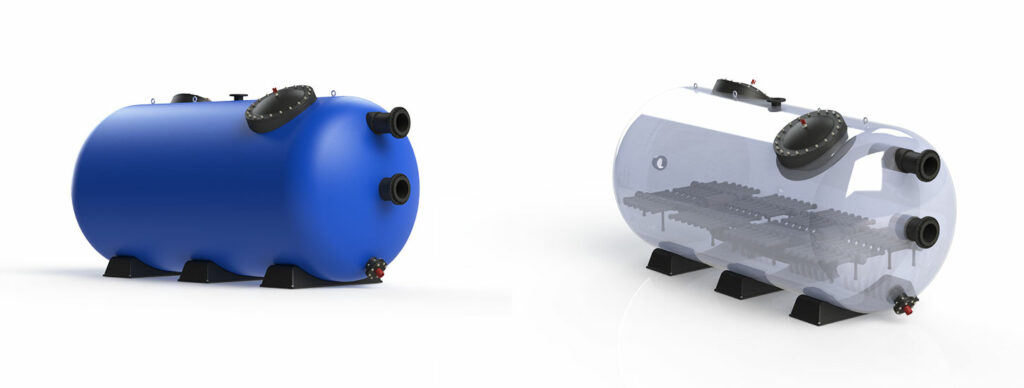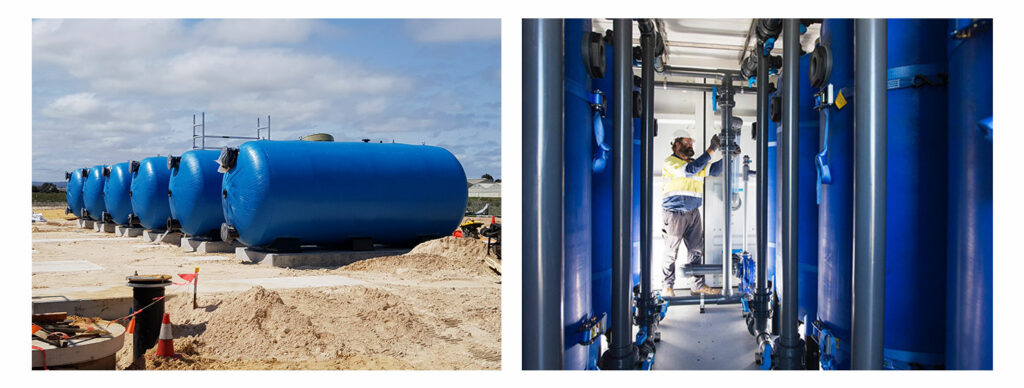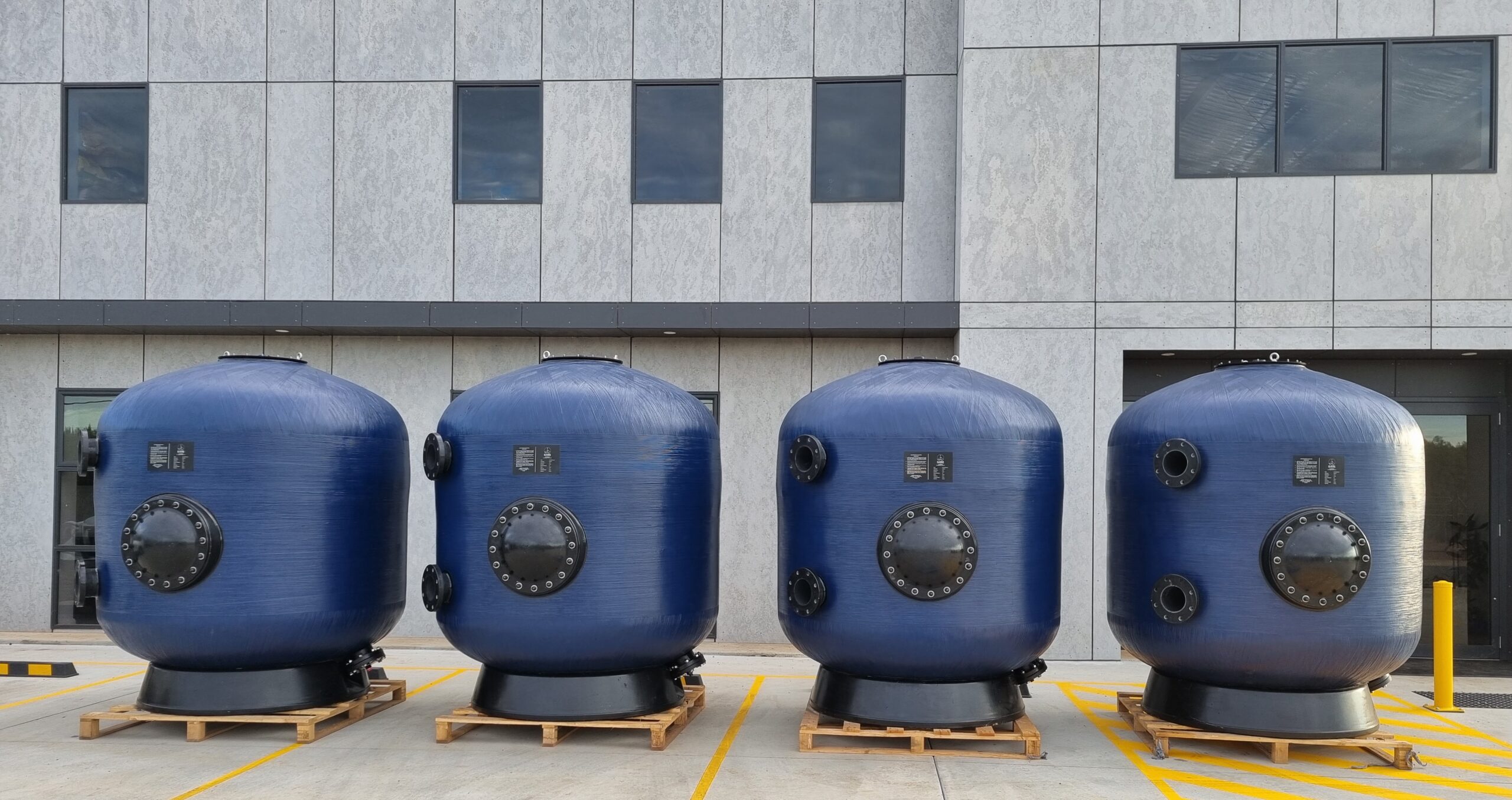FRP or fibre reinforced plastic is made of a polymer matrix reinforced with fibres. FRP offers many advantages over traditional building materials such as steel as it won’t corrode, rot, warp, attract insects or rust, making it an ideal and long lasting replacement.
Below we outline some of the key benefits of FRP over steel and why Glacier Filtration specialise in the design and supply of FRP and Polyamide vessels to fulfil our customers requirements, giving them peace of mind.
Pressure filter vessels made from FRP are highly resistant to corrosion, warding off chemicals, effluent, salt and water. The material is resistant to electrolytic and chemical attacks, making it ideal for saline and aggressive media. Unlike steel, which is susceptible to oxidation and corrosion, FRP is able to withstand these chemicals, making it the perfect application in situations of water storage and treatment.
FRP is a stronger material compared to steel, whilst being lightweight. FRP weighs 75% less than steel but is still able to maintain its strength. This means FRP pressure filter vessels are easier to install, saving time and reducing costs. FRP also has greater tensile and compression strength due to the addition of fibres.
FRP is a good insulator with low thermal conductivity, zero electrical conduction and high dielectric capability. As a result the composite material is able to retain reliability and performance properties in varying environmental conditions. With varying thermal energy, steel has a much greater fluctuation of its properties, causing it to become more unreliable in varying temperatures and environmental conditions.
Pressure filter vessels manufactured from FRP will not permanently deform after an impact. The structure of the material absorbs the impact, preventing deformation or denting, even in subzero temperatures, whereas steel will permanently deform, potentially requiring repair.
Overall, FRP is the more cost effective option, with lower installation costs, less maintenance and longer product life allowing for a lower life cycle cost. FRP retains its reliability and properties even in the harshest industrial operating environments, making this the ideal pressure vessel material for demanding applications in the water and mining industries.



